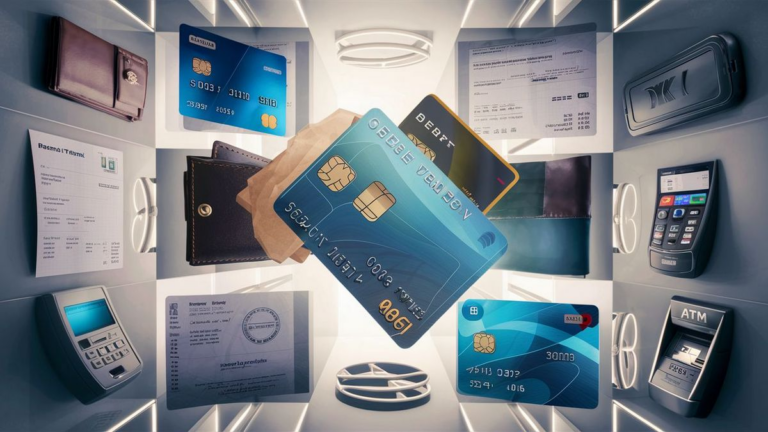When it comes to managing finances and making purchases, understanding the fundamental differences between credit cards and debit cards is crucial. These two types of plastic cards may look similar, but they serve distinct purposes and come with their own set of features and implications.
Credit Cards: A Line of Credit
A credit card essentially provides you with a line of credit that you can use to make purchases. When you use a credit card, you’re essentially borrowing money from the card issuer to complete the transaction. The amount you spend with a credit card adds to your outstanding balance, which you’ll need to repay at a later date.
One of the key features of credit cards is the ability to carry a balance from month to month, although doing so typically incurs interest charges. This flexibility allows users to make purchases even when they may not have the funds readily available.
Debit Cards: Direct Access to Funds
On the other hand, a debit card is directly linked to your bank account. When you use a debit card to make a purchase, the funds are immediately withdrawn from your checking or savings account. Unlike credit cards, which involve borrowing money, debit cards only allow you to spend what you currently have in your bank account.
Debit cards are often used for everyday transactions like grocery shopping or paying bills. They provide a convenient way to access your funds without carrying cash, and since the money is deducted directly from your account, there’s no risk of accumulating debt or paying interest.
Key Differences
Now, let’s delve deeper into the specific differences between credit cards and debit cards:
| Credit Cards | Debit Cards |
|---|---|
| Allow you to borrow money from the card issuer | Only allow you to spend what you have in your bank account |
| May involve paying interest on outstanding balances | No interest charges, as transactions are directly funded from your account |
| Offer rewards and benefits such as cashback, airline miles, or rewards points | Typically do not offer rewards, although some banks may provide perks for debit card usage |
| Provide a grace period before repayment is required | Funds are immediately deducted from your account |
| Can help build credit history if used responsibly | Do not impact credit history or score |
Choosing the Right Option
Deciding between a credit card and a debit card depends on your financial goals, spending habits, and personal preferences. If you value convenience and the ability to earn rewards while managing your expenses responsibly, a credit card may be the right choice. However, if you prefer to stick to a budget and avoid the temptation of accumulating debt, a debit card offers a straightforward way to access your funds without the risk of overspending.
Ultimately, whether you opt for a credit card, a debit card, or both, it’s essential to use them wisely and understand their respective terms and conditions to make the most of your financial resources.
curity and Fraud Protection
Both credit cards and debit cards offer various levels of security and fraud protection, but they operate differently in this regard.
- Credit Cards: Credit cards typically offer more robust fraud protection compared to debit cards. Under federal law, your liability for unauthorized transactions on a credit card is limited to $50, and many credit card issuers offer zero-liability policies, meaning you won’t be held responsible for unauthorized charges.
- Debit Cards: While debit cards also provide some level of fraud protection, the process for resolving unauthorized transactions can be more complex. Your liability for unauthorized transactions depends on how quickly you report the loss or theft of your card. If you report it within two business days, your liability is limited to $50. However, if you wait longer, you could be liable for up to $500 or more.
Overdraft Fees and Protection
Another important factor to consider when comparing credit cards and debit cards is their handling of overdrafts and associated fees.
- Credit Cards: Credit cards do not typically charge overdraft fees since you can only spend up to your credit limit. However, if you exceed your credit limit or fail to make at least the minimum payment by the due date, you may incur fees and penalties.
- Debit Cards: Debit cards can be subject to overdraft fees if you spend more than the available balance in your account. Some banks offer overdraft protection programs, allowing transactions to go through even if you have insufficient funds, but these programs may come with fees of their own.
Frequently Asked Questions
Here are some common questions regarding credit cards and debit cards:
- Can I use a debit card to build credit?
- Do debit cards offer the same level of purchase protection as credit cards?
- Are there any disadvantages to using a credit card over a debit card?
- What should I do if my credit card or debit card is lost or stolen?
See also:






